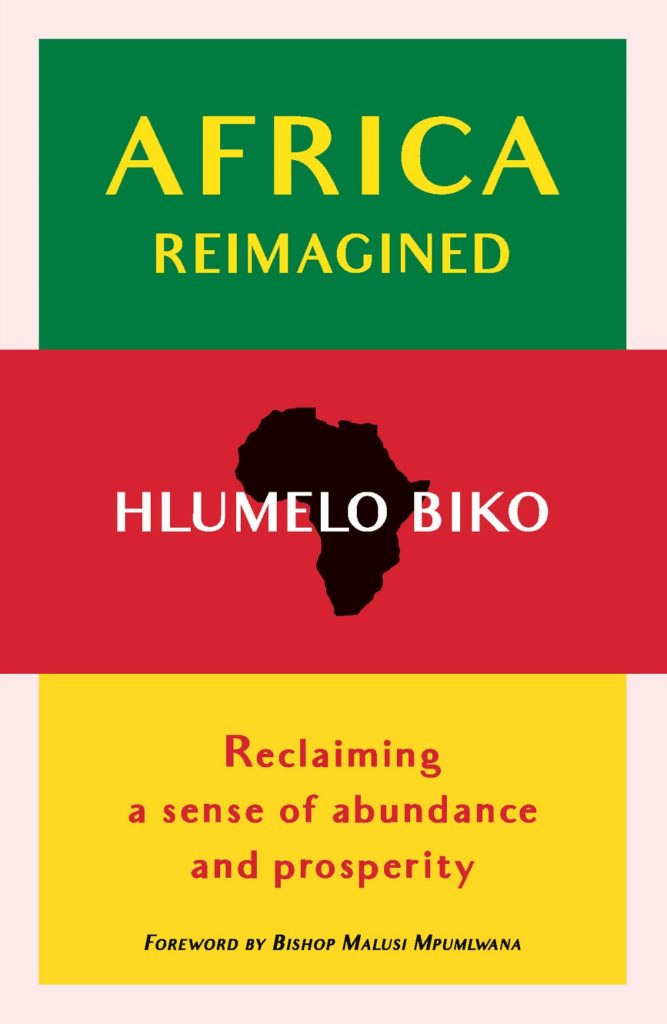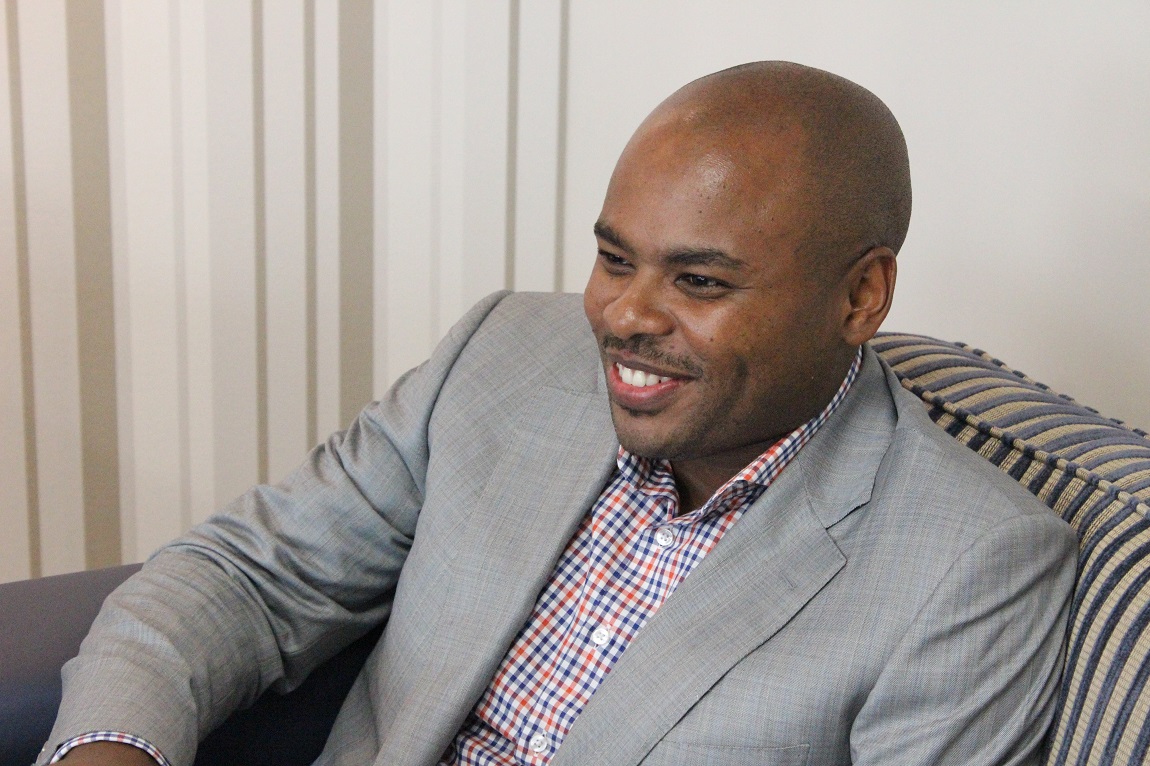BOOK EXTRACT
Slavery, colonialism, imperialism, and apartheid have fundamentally unbalanced the values and self-concept of Africans. There must be a rediscovery of African identity, writes entrepreneur and Pan-Africant HLUMELO BIKO in his new book “Africa Reimagined: Reclaiming a sense of abundance and prosperity”. Below is an extract from Biko’s book.
Humans experience three types of reality, two of which are well understood and a third that we often forget to recognise. The first is objective reality, exemplified by our shared experience of life as oxygen-breathing inhabitants of this planet. The second is subjective reality, such as how attractive we perceive our environment to be and the way we perceive ourselves in it. The third is intersubjective reality, which is a group’s commonly held set of myths or beliefs – for instance, a belief in God, Amen Ra or Allah.
Specifically within the African construct, our documented intersubjective reality begins with Africa’s ‘discovery’ by Europeans. African history predating the Berlin Conference of 1884–1885 is almost wholly devoid of our own story of human development. We have been reduced to a one-dimensional anthropological study, within which events happen to African people while they passively conform to the results of these events.
There is a set of facts commonly agreed on by historians and ordinary citizens alike. We have the second-largest and second-most populous continent. We speak close to 3 000 different languages, and are commonly believed to have the world’s greatest genetic diversity. We are the cradle of global civilisation. Beyond this common understanding is where the deviations in our subjective realities occur.
This diversity of Africa’s subjective reality has not prevented a dominant narrative from emerging. The media has settled on a common negative narrative about Africa. Somehow, history portrays us as a stagnated collection of foraging and hunter-gathering societies civilised by contact with the outside world. Almost all of our history books begin the in-depth analysis of our history in the 19th century, as a soon-to-be-colonised continent. Popular culture has dramatised this narrative in a variety of ways, from movies such as The Gods Must Be Crazy (1980) to the infamous 2007 cover of The Economist magazine titled ‘The Dark Continent’.

We are described in the language of subjects who are usually other than the author. These descriptions move from wonder to awe and swiftly towards pitying patronisation as the authors describe a succession of military defeats, with some dramatisation of a handful of pyrrhic victories. African people are described in paternalistic tones, complimenting the intriguing nature of their historical customs while framing their current cultures as reflective of idealistic and naive norms and values. Historians typically explore our history through the lens of colonialism. They compare and contrast each African country’s experience and implicitly question where Africans would be without Western civilising contact.
This ‘traditional’ body of history usually ends with the struggle for independence and the perils of post-colonial self-government, and the ineptitude of indigenous people’s management. This leaves the reader wondering if the Africans in question would not have been better off being permanently colonised. At some point the common understanding is that Africans are both unlucky and incapable of independently managing their affairs. As Africans, we outwardly reject this interpretation of our history. However, a lack of compelling alternative narratives, together with a depressing set of negative present-day images, seems to confirm some of our worst fears, namely, that this view of Africans may be right.
This defeatist construction of reality leads African leaders and citizens to rely on many psychological crutches. We are crippled by two opposing narratives that sit side by side in conflict with one another. One is that we are proud of our history as the cradle of civilisation. This pride is often affirmed by our day-to-day observations of examples of African ingenuity that give us hope for the future. The second is that, as a recently liberated continent, Africa trails the rest of the world in the race to modernise. These opposing realities give rise to a form of cognitive dissonance that weakens core confidence among African people. This makes it difficult for the majority of African professionals to have a strong sense of self-confidence and self-efficacy when competing against their global counterparts.
There has to be a different way of thinking about Africa. We have to re-examine our history in all its glory and depression, just as any other continent would do. We have to make African history ours again. History has to become Our Story. We have to reassert the historical fact that Africans birthed the world’s first great civilisation over 3 000 years before the birth of Christ. It must be acknowledged that this Egyptian civilisation was mothered in 4000 BCE by Sudan and Ethiopia, and that these societies taught the Egyptians how to build pyramids and understand their universe. Ancient historians such as Herodotus understood and documented that Africans populated many parts of the Near, Middle and Far East. Linguists, sociologists, scientists and historians now openly admit that the first Indus River civilisation was dominated by Africans called Dravidians. That Herodotus and other ancient historians used the word ‘Ethiopia’ to refer to the inhabitants of the territories east of Egypt all the way to India should be instructive in how we think about African dominance between 3000 BCE and 332 BCE.
We must reassert the fact that Africans from Mali and Egypt arrived in the Americas 700 years before the birth of Christ, not as slaves or hostages, but as explorers who left large statues that were admired by indigenous Americans. This historical fact, having been proven by scholars such as Ivan van Sertima, has been recognised by the United States Congress, which has dropped all reference to Christopher Columbus having discovered America, yet we won’t teach it in our African schools. It has to be remembered that Africans, specifically the Moors (Berbers) of the Maghreb, helped the Arabs to both colonise and civilise the Iberian Peninsula, beginning in 711. It is important for both Africans and Europeans to realise that without this gift of civilisation, Europe would not have emerged when it did from the Dark Ages.
There is a demand for a new intersubjective reality. The African continent cannot be a permanent recipient of policy advice, nor can it be a permanent feature on donor lists. It has to re-establish the reality of Africa as a vast continent made up of talented people in search of a development model that works for them in the modern era. This book explores in detail the psychological predilections that make economic development difficult on the African continent, and the space where history, social psychology and political economy meet.
I examine how interpretations of history shape relationships with present-day cultural norms and attitudes towards modern institutions. I look at how these norms impact on people’s freedom of thought, their attitude to rules, their approach to leadership and their economic behaviour, and how these choices tilt the advantage from indigenous Africans towards immigrants or non-indigenous Africans. I start by presenting an alternative subjective reality from an Africanist point of view. The purpose of this work is to kick-start the process of socialising this interpretation of reality in the hope that one day it may merge with others like it, espoused by my fellow Pan Africanists, to form a permanent intersubjective African reality able to generate a rich base for patriotism.
I choose to write in this fashion about this topic because I have reimagined the Africa I want to live in. In this Reimagined Africa, my Africanness is fundamental to who I am. It is fundamental to the perspective I bring to any interaction with other human beings. In the Africa I want to live in, my idea of self is encoded in a belief that Africans have the oldest human culture, one deserving of its place among those of the rest of the world. This belief demands that I work towards a realisation of the dream that Africa should be for Africans, that African economies need to be stewarded by Africans, that African culture should sit at the apex of all of the African political economies, that the African child should be educated in the knowledge of their true history. An intimate understanding by Africans of this reality would enable us to feel ownership of an equal share in all the splendour that modernity has to offer.
Published by Jonathan Ball Publishers, you can find Africa Reimagined online and in good bookstores for R275.









